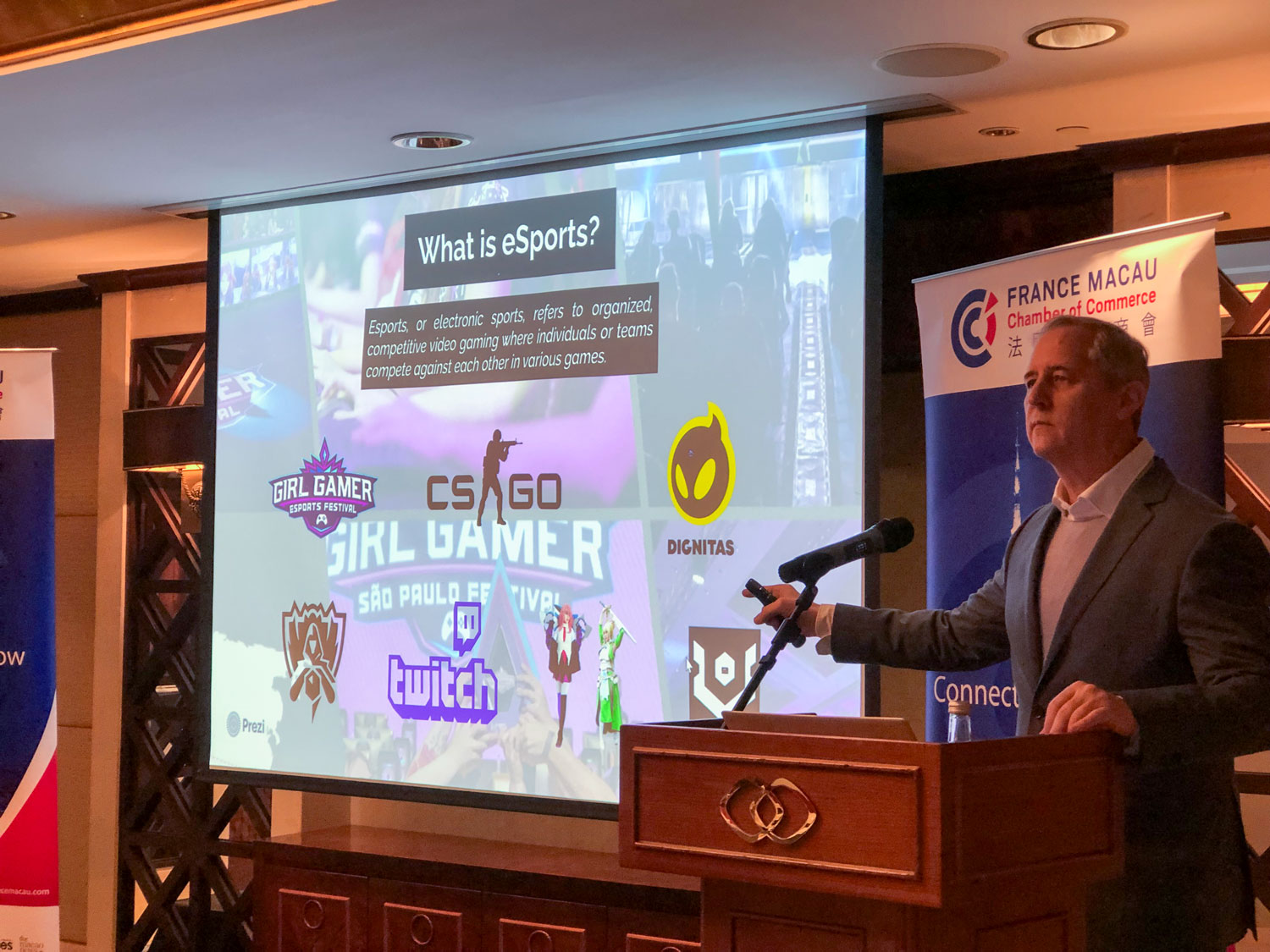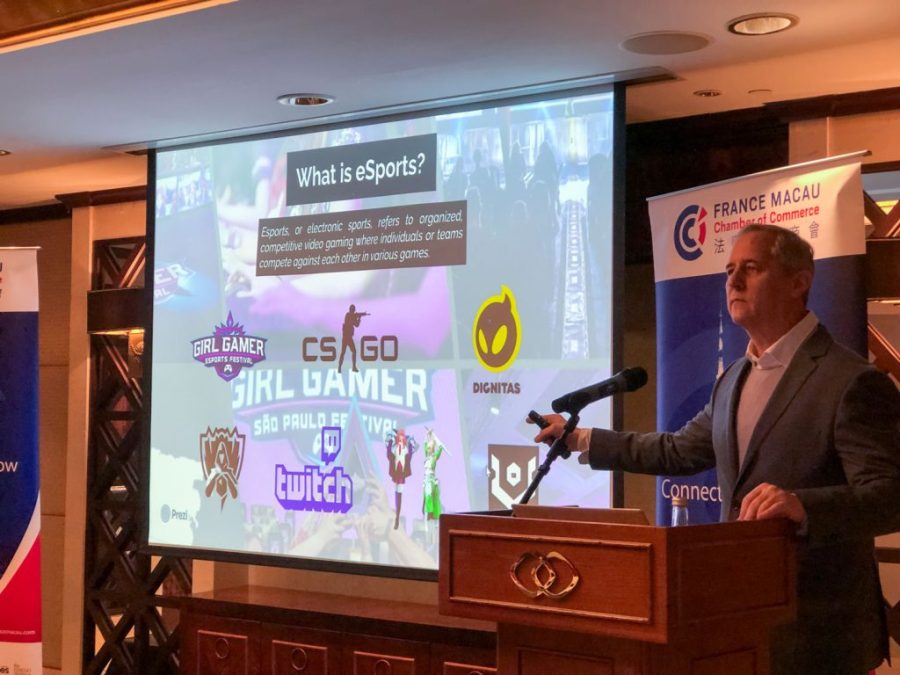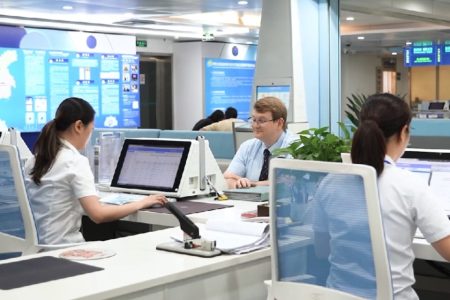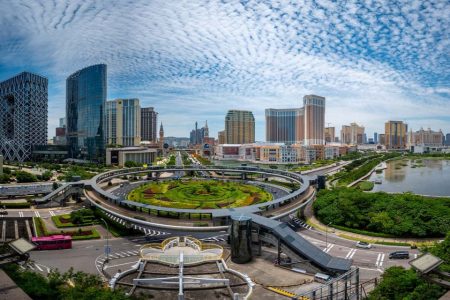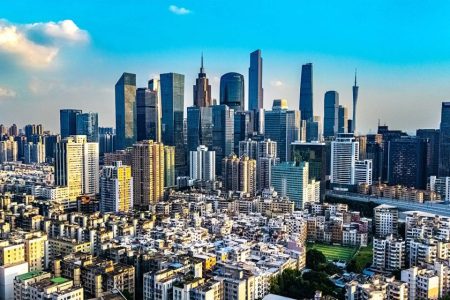Macao is well-positioned to emerge as a premier e-sports destination, says Andrew Pearson, managing director of Intelligencia Limited, an analytics and artificial intelligence (AI) consultancy group based in the SAR.
Speaking at a France Macau Chamber of Commerce (FMCC) breakfast event on Wednesday, Pearson, who is also vice president of the Macau Grow Up eSports Association, was bullish on the city’s potential to leverage its role as a cultural gateway between global hemispheres and support China’s booming e-sports industry, which boasts 490 million players.
Defined as competitive and organised video gameplay, e-sports generally appeal to younger groups, such as Millennials and Gen Z. But Pearson cited its demographic inclusivity as a strength. Low participation costs and extensive reach through social media and online platforms make e-sports a key driver in the future of the global entertainment industry, able to capture millions of eyeballs from around the world at any time.
“As the industry evolves, that economic significance matures further,” added Pearson, who expects the industry’s next credibility boost to come later this year when the inaugural Olympic Esports Games take place in Saudi Arabia.
The real-world contests taking place
Apart from competition among gamers, major cities are also battling it out to take top spot in the e-sports industry. Estimates of the global market size vary, but it is potentially huge.
Pearson mentioned that partnership and sponsorship deals each generate billions of dollars annually, while market research group Frost & Sullivan forecasts that increased viewership could push the industry’s event marketing value to US$2.7 billion (21.6 billion patacas) by 2027.
But Pearson adds that broader commercialisation opportunities, from direct advertisement and media rights to streaming income and in-game cross-selling, could push its value up more, with Frost & Sullivan seeing that value exceeding US$100 billion (802 billion patacas) by 2027.
In an interview with CNBC last month, NIP Group Chair Mario Ho said he expects to see more entrepreneurs enter the e-sport space, which he views as a mechanism to diversify the local economic landscape, including opportunities for e-sport hotels targeting younger consumers.
Macao has already hosted several e-sporting competitions, including the Teamfight Tactics (TFT) Macao Open at The Venetian in December and the Girl Gamer Festival at Studio City in 2017.
Equipped with technological infrastructure for large-scale events, Macao is well-suited to support the e-sports ecosystem. But it has stiff competition. Other cities are investing heavily in the same infrastructure and racing to develop e-sporting events that boost tourism.
With nearly 35 million visitors arriving in 2024, Macao’s “1 + 4” development strategy aims to enhance its tourism offerings. Pearson concluded that with modest investments and strategic partnerships, Macao could become a featured e-sports destination that meets many of these policy targets, but it cannot miss the opportunity at hand.
